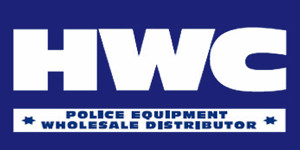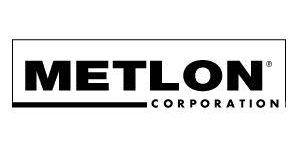|
By Carol Brzozowski The concept of social responsibility standards in the workplace fair pay and humane treatment is as old as the workplace itself. But in contemporary times, the issue has moved to the forefront of business concerns, spawned by such incidents as when the clothing line bearing Kathie Lee Giffords name was found to employ sweatshop conditions during garment construction. Up to that point, a lot of brands had products made in factories that few, if anybody, ever visited, and the issue of working conditions in factories was unknown, says Stephen Jesseph, interim director for the not-for-profit Worldwide Responsible Apparel Production (WRAP) program. Thats no longer the case. And while industry officials agree that social responsibility standards are paramount to doing good business, many fear good companies will suffer for the actions of a few bad apples because of anonymous criticisms, the lack of standardized social responsibility factors and the cost-prohibitive nature of social compliance reviews, which may ultimately drive smaller firms away from business. Bill Bradbury, social compliance director for the Cintas Corporation, is quite experienced in what can happen when misunderstandings arise. A few years ago in Maine, a union lobbed an accusation against one of the companys foreign facilities. Maine threatened to terminate its contract with Cintas until the company which is WRAP-certified and monitored by a third-party auditing firm fought back, contending the accusation was not a proven violation. Maine retained the contract. Bradbury says his company had open litigation against its accuser, which had been trying to unionize the company. In mid-2005, Maine began a process to review its rules and hosted hearings at which some 20 advocacy groups appeared. The program initially stated if you were going to bid on a contract, you needed to sign an affidavit under oath that you were going to administer and apply the state code of conduct and follow that code, which we did, says Bradbury. But there was no parity in that anybody making an allegation had to do the same. Unions and advocacy groups stated it wasnt fair and needed to be left the way it was that not everybody should have to reveal themselves because they were afraid of retaliation. His company would not retaliate, Bradbury contends. We dont own those facilities; they are contractors. If they are doing the wrong thing, we want to know about it so we can take corrective action. People dont run their businesses in foreign countries the same way we run them here in the United States. In addressing its code of conduct, Maine directed its standards to the textiles and footwear industry. That raised a red flag among uniform manufacturers. If you are going to have a code of conduct, shouldnt it be for everything supplied to the state? Bradbury contends. The National Association of Uniform Manufacturers and Distributors (NAUMD) and the American Apparel & Footwear Association issued a call to arms over the matter. Of concern to the trade associations was the possibility Maine would relinquish its decision-making to advocacy groups. Calling that a fundamental problem, Bradbury asserts the groups have an agenda. The state has to be responsible for what it is going to do based on evidence; nobody else can make that decision, he says. They need to create parity in this process so that businesses and anybody wanting to make an allegation has to follow the same process. As Maine and other states tackle the issue, trade associations and companies like Cintas are attempting to start a grassroots effort inviting industry companies to weigh in on such legislation. Theyve only heard from one side, Bradbury says. Business needs to weigh in on this because it is a responsible thing. Taxpayers need to weigh in on it because it is their money. Michael Broome, president of Samuel Broome Uniform Accessories in Long Island City, N.Y., and president of NAUMD, contends that what Maine and possibly other states have considered is very ambiguous and reeks of a profit center for someone. People have to remember social compliance is basically for protecting peoples rights, and thats not what I see happening here, he says. Its one thing to have a service perform a function; its another when it becomes a new way to make money. In this case, it pays to find more things wrong than perhaps would be there. The motivation to work with somebody to correct problems is lost in the shuffle of making sure you can write up as much as you can. Broome says he doesnt believe any agency promoting a social responsibility standard should subcontract the inspection process without being present for it. When you subcontract it out to an organization as opposed to an established testing service, youre opening yourself up to all sorts of political agendas, he says. The more people you get in the mix, the more of the message is lost. And unless companies in the industry speak their piece, its an issue that can get out of hand quickly, he says. If people are not going to deal with it now, theyre going to deal with it later. Industry officials in general do not object to the existence of social compliance standards, but they do have concerns with how they are starting to be defined and assessed. Nobody wants to show up on the news, to be the next Kathie Lee Gifford sweatshop, says Broome, adding that social compliance inspections are akin to advertising in that it markets ones company as a good corporate citizen. Broome says its easy for companies with brand names that contract work to different shops to fall prey to allegations. Its a good idea as a manufacturer to have to police our subcontractors to a degree, he says, adding that in the United States, the media also pursues allegations as news stories. But then you start crossing the line with just how much can anybody be responsible. I feel the social compliance issues being mandated in the United States are, in most cases, reasonable, understandable and perhaps a bit redundant with existing law and policies, Broome adds. Obviously theres a gap, and the issue arises because people arent doing due diligence. I wouldnt want to rely upon a contractor who wasnt doing the right thing because you cant rely on production. But Broome wonders how effective some regulations can be, and he cautions against making sweeping deductions based on a handful of worst-case scenarios. He says, When you try to regulate things, the people who will not follow it are not going to [start being socially responsible] because of regulations. The people who will follow it will perceive such a burden that they will not be able to function. Additionally, there are cultural differences in social responsibility perceptions. Broome says, When you tell someone in a foreign country they cant have children below the age of 15 working in their place, theyll say, The nerve of you Americans telling us whats normal. Here it is proper for children to work, because idle hands are the devils playthings. Look at your own problems before you start telling us how to fix ours. Is that entirely legit? Probably not. Is it totally inaccurate or not? What solutions there are to that is for better minds. Social compliance should begin right here in this country with a companys own code of conduct, Bradbury says. Cintas has a policy by which it verifies upfront that its suppliers operate in an ethical manner. We make sure they are playing by the rules and are following the laws of their country, he adds. Most companies look at this as a policing action. We look at it as a collaborative effort. You are always going to be monitoring your suppliers; theyve got to do it out of a desire to be better and to do the right thing. If they dont, then you shouldnt be doing business with them. One of the major complaints a majority of industry officials have with some social compliance systems is their allowances for anonymous complaints. It always leaves open the question of the persons motives, Broome points out. A social compliance review should be constructed in a way where it is fair and a company can face its accuser, he adds. These kinds of issues have nothing to do with the worker or the business at hand, and [the regulations] can be manipulated, he says. You have to step up and say what it is youre complaining about and who you are and what your relation is to the situation in order to have any weight to the complaint, or else wed be back in the McCarthy era. Another concern is the cost of the inspections, which can have the consequences of smaller businesses having an even more difficult time competing for contracts. A typical investigation can cost a company upwards of $2,000 each time it goes for a bid. Social compliance reviews mean that mom and pop uniform stores are at a great disadvantage because they cant afford to go through a multitude of these, Broome says. That should be enough incentive for smaller companies to weigh in on the issue, he adds. Its going to be very hard for a local businessman to afford to bid on a state or local police department contract because each time that company does, its going to have to submit to a social compliance review and all of its subcontractors and suppliers are going to have to do it, Broome says. Someone selling socks and belts is going to be extremely reluctant to be involved because they wont be able to afford it. Theres not enough business there to cover the expense of it. Social compliance reviews can involve a large time commitment as well as a financial commitment. Its a time-consuming, difficult process that now involves interviewing your personnel and checking payroll records over a three-year span, Broome says. A challenge arises if uniform shirts are coming from China, Broome points out. Are you going to send somebody there for $2,500? Youre probably going to go to a shirt plant thats doing thousands of police departments or programs, he says. Thats my concern with social compliance in general is the same battlefield level or are people simply starting up businesses in social compliance because its here and its cheaper to get to and its news? There are not a lot of photographers and newspaper people looking to expose worker mistreatment in Chinese factories. If youre going to inspect here, are you going to inspect there? A third concern is standardization. Broome advocates a standardized policy whereby a not-for-profit program such as WRAP conducts an annual review. The program certifies factories to 12 principles written by the organization of which nine are based on U.S. law and the remainder on international law. The concept is WRAP would be a minimum standard for companies, says Broome, adding that while hes not necessarily endorsing WRAP, it could be any standard that is negotiated and discussed intelligently. That levels the playing field for the small guy and gives them a shot, he says. Joseph Greco agrees that a standardized system would help the industry. He is president of Greco Apparel in Ambler, Pa. The company does business in the United States and the Dominic Republic. Greco says he fully supports social compliance inspections. If youre concerned from the supply side, then its your responsibility to see that your vendors are acting appropriately and the customers are satisfied, he says. Between Internet sales and interstate shipping, you dont know where your vendors may be, where their products are being made or where they are going to end up, so it would make sense to have it standardized because this world is too flat not to have a standardized system. How do you expect a businessperson to be responsible where something is OK in 49 states but not the 50th one? Greco favors standardization that evaluates and awards certifications across the board on a standard timeline. He says, Once you have been approved and certified, that should be good. Maybe it should be done every couple of years to verify the same factors are in place, but no business can afford to have these extra costs. You want to invest it in better technology. Steven Jesseph, WRAPs interim director, also agrees there needs to be one standard by which factories can be assessed. He points out that WRAP started with a group of various-sized apparel companies that promoted the idea of taking responsibility for the working conditions in their factories. We can never be certain that all factories are 100 percent in compliance at all times, but we are working to make sure the factories are substantially in compliance, he says. Jesseph says the industry favors the idea of an annual compliance audit, assuming there are not egregious problems. We are conducting a pilot program in 10 countries around the world for a six-month certification if a factory has items to correct. While WRAP favors the idea of a single worldwide standard, Jesseph says we live in evolutionary times and its going to take time to create the infrastructure, educate factories, have them voluntarily participate and have retailers agree on those standards. Bradbury says a key factor that arose from the Maine hearings is the observation that Maine is a benchmark state. Its the first that has a robust code that is being implemented and administered, but they are collaborating with other activist and advocacy groups in other states, where they are going to try to create parallel legislation, he says. If 25 states have that rule, it will cost a company trying to do business with any state somewhere around $25 million to do business with any state organization. Not only will that essentially pare down the competition, but ultimately taxpayers will pick up the tab of the increased charges, he says. Bradbury says during Maines hearings on the issue, Cintas proposed that the state certify vendors and suppliers before doing business with them certify they do things in an ethical manner and have a robust program that monitors and creates sustainability in a socially responsible program. If you do that, all of this cost and extra effort goes away. Greco says he strongly believes a responsible business needs to be socially compliant and in tune to the needs of people. But what that is, how it is defined, how it is regulated or what the cost is needs to be determined in an intelligent way that supports that philosophy. |
WRAPs objective… Additionally, WRAP monitors compliance. WRAPs standards for manufacturers of sewn products includes: Compliance with workplace laws and regulations in all locations where a company conducts business. Prohibition of forced labor. Prohibition of child labor. Prohibition of harassment or abuse. Compensation and benefits that align with the minimum total compensation required by local law, including mandated wages, allowances and benefits. Work hours that do not exceed the legal limits of the countries in which the sewn product is produced. Prohibition of discrimination. Health and safety provisions. Freedom of association and collective bargaining. Compliance with environmental rules, regulations and standards. Customs laws compliance. Security procedures that guard against the introduction of non-manifested cargo into outbound shipments. |
| Above story first appeared in MADE TO MEASURE Magazine, Spring & Summer 2006 issue. All rights reserved. Photos appear by special permission. | |
|
Halper Publishing Company |
|
Home Spring & Summer 2006 Uniform Companies Face Challenges as Social Responsibility Takes a World Spotlight










